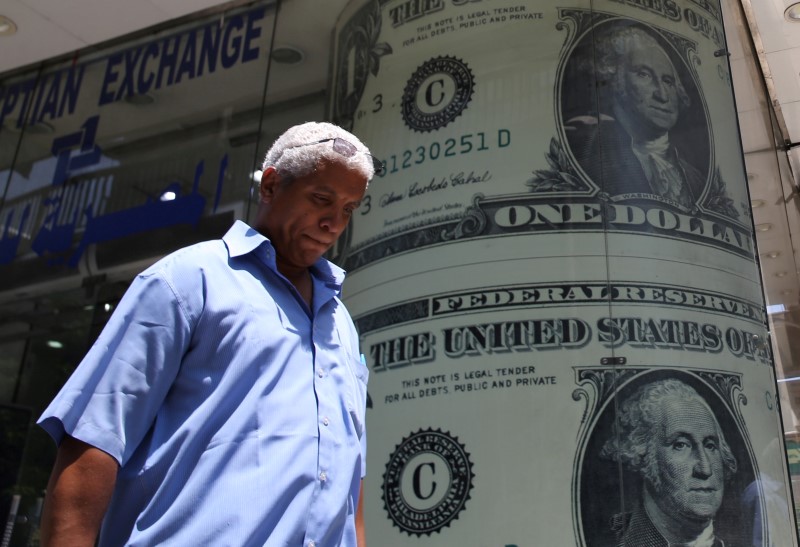Investing.com – The US dollar rose on Thursday, benefiting from robust employment data and uncertainty caused by unrest in the Middle East.
At 04:30 ET (08:30 GMT), the Dollar Index, which tracks the greenback against a basket of six other currencies, was trading 0.2% higher at 101.597, not far from its recent three-week high.
Strong labor market data boosts the dollar
The dollar got a boost from Wednesday’s report, which showed a larger-than-expected increase of 143,000 U.S. jobs last month.
This followed Tuesday’s stronger-than-expected US quote, and has raised expectations for a healthy quote on Friday, which could result in an adjustment in market views on the likely pace of Fed easing.
“Year-end Fed funds pricing remains largely based on a 50 basis point cut in November or December, which means room for further adjustment to the Fed’s less dovish rhetoric and consequently upside risks for the dollar,” according to ING analysts. a note.
“We feel the bar for a dollar-negative reaction to US data is likely to be higher today and tomorrow following Fed Chairman Jerome Powell’s recent reluctance to a 50 basis point cut.”
According to CME Group’s (NASDAQ:) FedWatch Tool, the market currently sees a roughly 37% chance of another 50 basis point U.S. rate cut on November 7, following the Fed’s outsized cut last month.
The US currency as a safe haven also saw demand as tensions escalated in the Middle East following Iran’s ballistic missile attack on Israel.
The euro is weakening due to cooling inflation
In Europe, trading was 0.1% lower at 1.1035, with the common currency retreating close to a three-week low after further signs of cooling inflation in the eurozone.
Eurozone activity figures came in slightly stronger than expected in September, according to data released earlier Thursday, but figures for the region remained in contraction territory.
The European Central Bank’s usually hawkish policymaker dropped her long-standing warning about the difficulty of curbing price growth in a speech on Wednesday, raising expectations of another interest rate cut later this month.
GBP/USD fell 1% to 1.3133, falling to a two-week low after the Bank of England governor said in an interview that the central bank could become “a bit more activist” on rate cuts if there is further good news on inflation was to come.
The yen falls to a six-week low
rose 0.1% to 146.53, with the pair rising to a six-week high after Japan’s new prime minister said he was cautious about the need for additional rate hikes after a meeting with the central bank governor on Wednesday.
The Bank of Japan’s July meeting released earlier this week also showed policymakers divided over how quickly the central bank should further raise interest rates.
remained largely unchanged at 7.0185, with Chinese markets now closed until next Tuesday as the country celebrates Golden Week.


